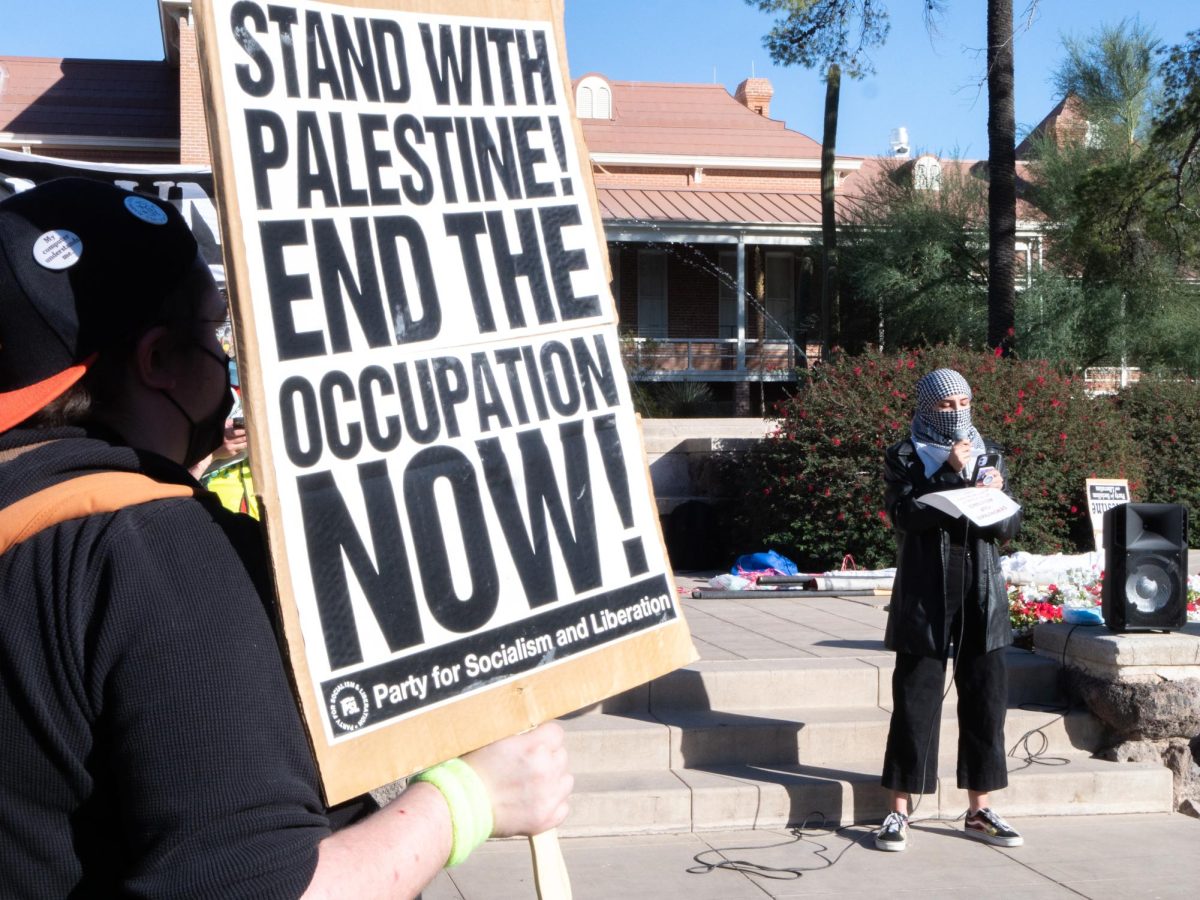Campaign reform, both financial and otherwise, has been all the rage in politics. Between the McCain-Feingold Act and the exhortations of John Edwards, many politicos have demanded that elections become more “”fair.”” Now, the Associated Students of Arizona is jumping on the bandwagon, passing a new and revised elections code three weeks ago. The new code requires, among other things, that “”only one candidate’s name may appear on … campaign material”” and that all “”websites, web pages, profiles on online networking sites …shall be approved by the Elections Commissioner.”” Like all elections reform, however, these changes aim toward admirable goals, but in the end merely worsen the problems they sought to control.
For starters, it is irrational for the Elections Commission to place further limits on dissemination of information in an election that garnered about 11.5 percent of students’ votes last year. A main problem of the ASUA elections is a general lack of information about the candidates. People vote for candidates in ASUA elections because they know them, not because they agree with their proposals. Restrictions on the establishment of Web sites and other forms of information only exacerbate this problem. Rather than encouraging an online or a real-word exchange of thoughts and ideas on the ASUA, these new restrictions instead continue a system of a “”popularity contest,”” where those with the most contacts, rather than the best ideas, win the elections.
These new restrictions also contribute to a problem inherent in all election reform: the enhanced power of the incumbent. When limits are placed on ads, online groups and other such sources of information, the incumbent benefits, because the incumbent will always be able to put his or her name out there through the media. Many students on campus know who current President Tommy Bruce is. However, if one were to oppose President Bruce in the next election, they would not be able to put out any information relating to their run until the official campaign period began. Meanwhile, President Bruce is still making headlines in the Daily Wildcat. Even once the campaign began, any of these newly restricted campaigning mediums would have to be approved by the Elections Commissioner – who was appointed by the current president. Clearly, there is a conflict of interest at play.
This raises another problem: the consolidation of power in the Elections Commission. It is important to emphasize that the restrictions on online resources are not outright bans; they merely require the approval of the Elections Commissioner. This creates a nightmare scenario: An Elections Commissioner, who is in cahoots with members of the ASUA, arranges approvals of election materials in favor of the incumbent members. Realizing this, the president (who appoints the Elections Commissioner) would appoint someone who is a good friend, as well as a friend to his or her allies in the Senate.
While the current commissioner, Amy Adamcin, may not have any such ambitions, the potential is there; there is no reason this could not happen in elections down the road. Imagine, if you will, that President Bush had the authority to appoint the person in charge of ensuring fair national elections, and you can see how quickly things could go wrong.
Rather than encouraging an online or a real-word exchange of thoughts and ideas on the ASUA, these new restrictions instead continue a system of a “”popularity contest,”” where those with the most contacts, rather than the best ideas, win the elections.
A good case study of these reforms can be found in the requirement of “”one name per material.”” Ignoring the irony that many members of the current Senate gained their post through materials with multiple names, the idealism behind it is solid. However, it doesn’t take a lot of imagination to think of a way around this. Perhaps candidates running together could use the same template for their posters, or they could all use the same campaign slogan. Yet even if the ban hypothetically worked, it still has issues. When multiple names are listed on a poster or flyer, it can safely be assumed that those candidates have similar views on the issues. If a voter likes the views of one of the candidates, they will be more apt to vote for the others. Without these sorts of materials, however, students may be unaware of the views of other candidates, and will simply not vote, leading to a lower turnout.
These reasons all pale, however, when compared to the truth behind campaign reform: All of these reforms, from McCain-Feingold to the ASUA Elections Commission, represent a suppression of the First Amendment rights we so cherish. This brings the entire Code into question, not just the new requirements. Why can a candidate place posters in classrooms, but not in computer labs? Why shouldn’t a candidate be able to hold a discussion about student government before the campaign? Then there’s the limits on spending, which existed long before these new reforms, and currently range from $400 for presidential candidates to $150 for special election candidates. Money may be stifling debate on a national level (although Ron Paul’s $4 million day flies in the face of this assertion), but is money really poisoning ASUA elections?
The monetary limit on campaigns is rendered useless when dues paid to various clubs and Greek societies essentially buy votes. Why should a potential candidate who is not a member be forbidden from raising his own money?
Furthermore, the President should not be appointing officials that preside over elections in which he or she may be involved. Clearly, some other figure, preferably outside of the influence of the ASUA, should be appointing the Elections Commissioner to prevent this conflict of interest.
All in all, we should be encouraging more discussion, not less. Campaign fliers may be exasperating, but they are a problem that unfree societies only wish they could deal with.
Evan Lisull is a sophomore majoring in economics and political science. He can be reached at letters@wildcat.arizona.edu.









